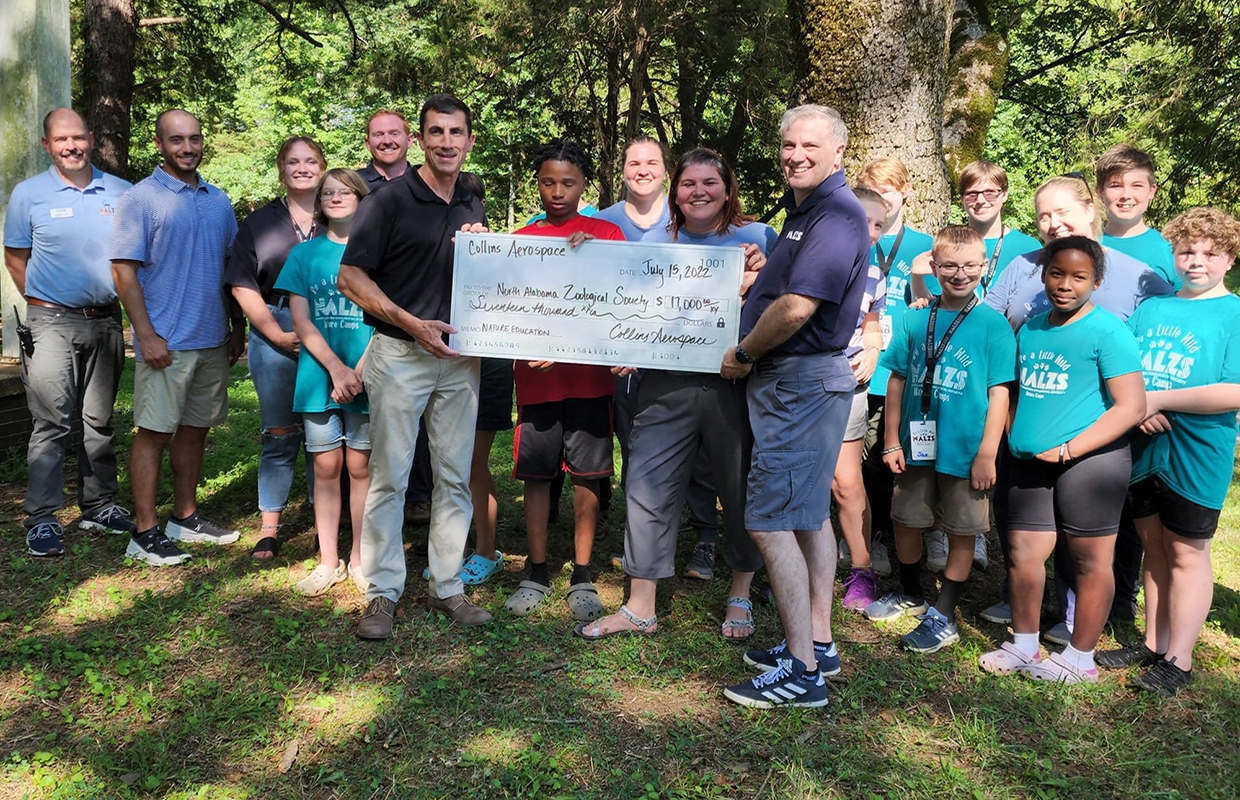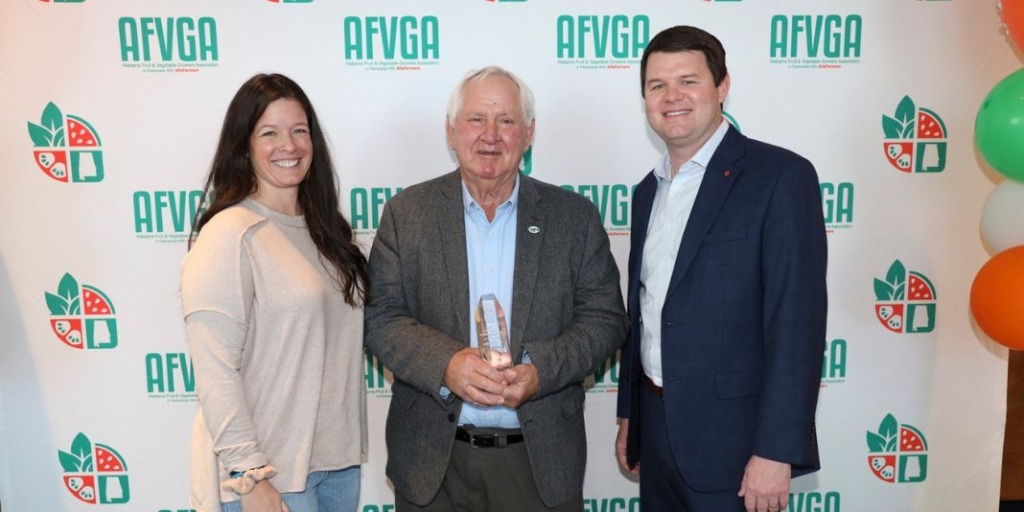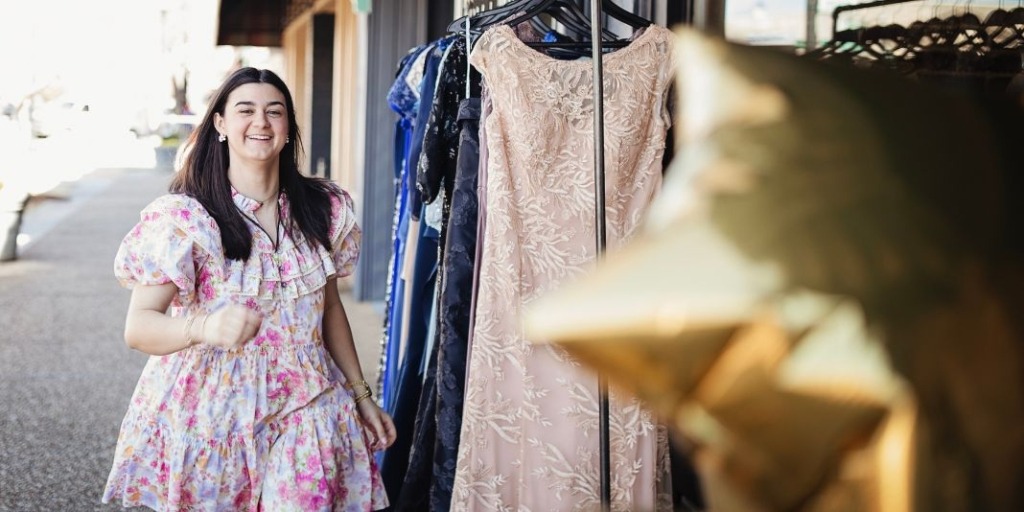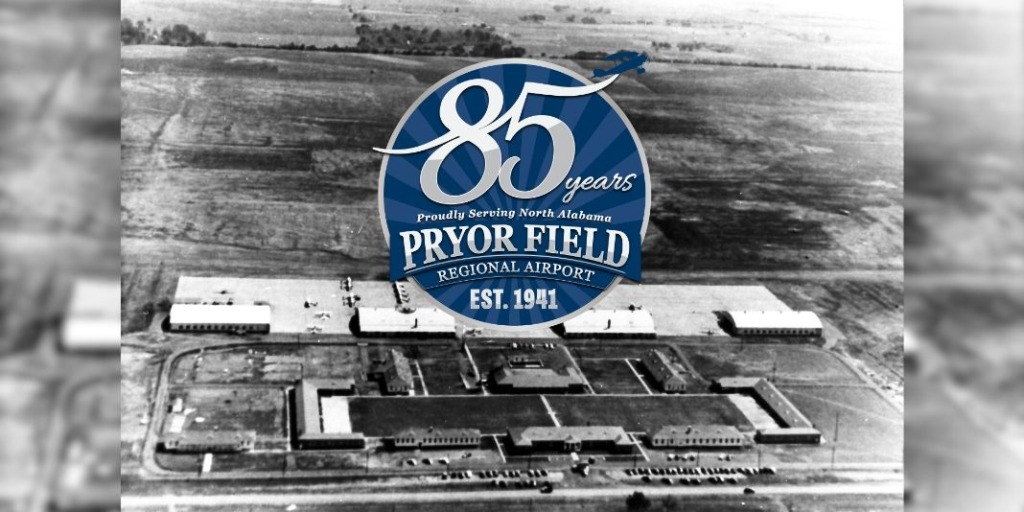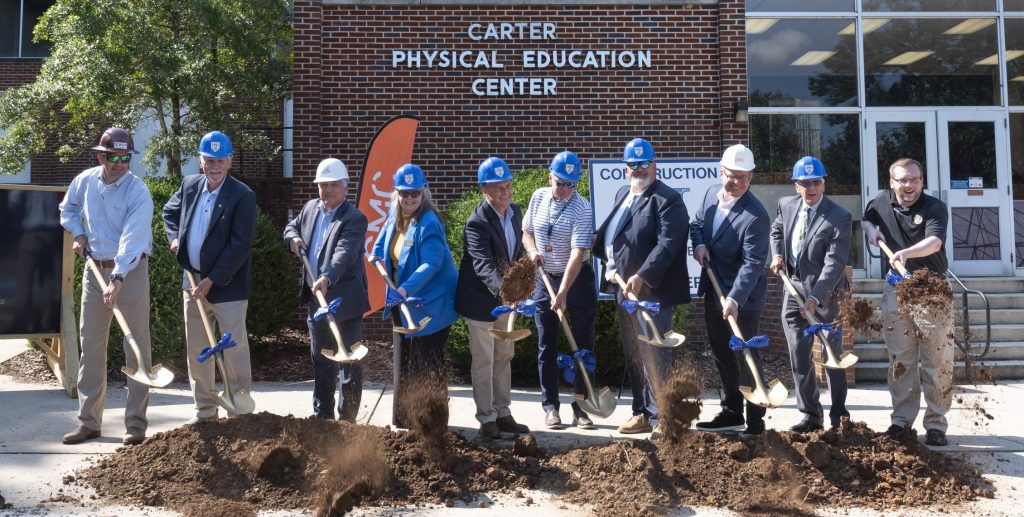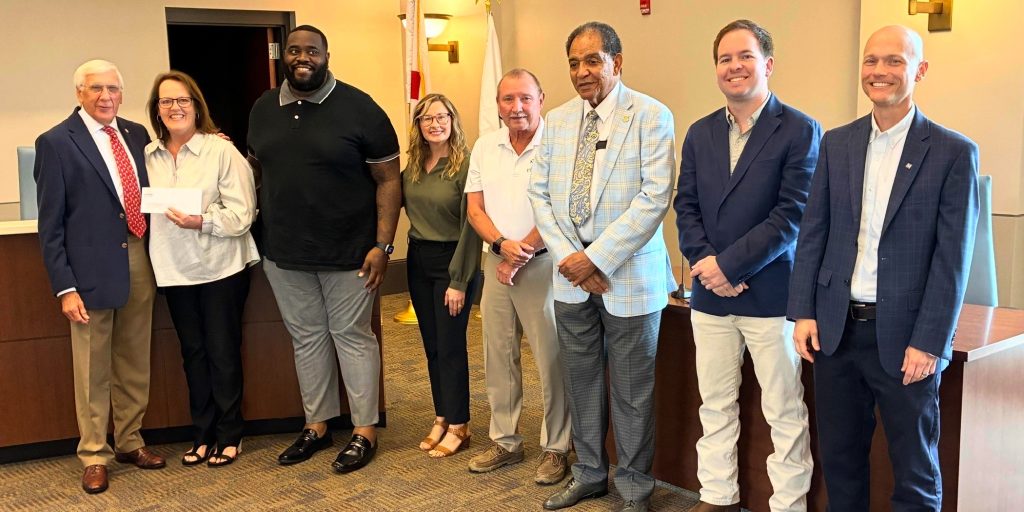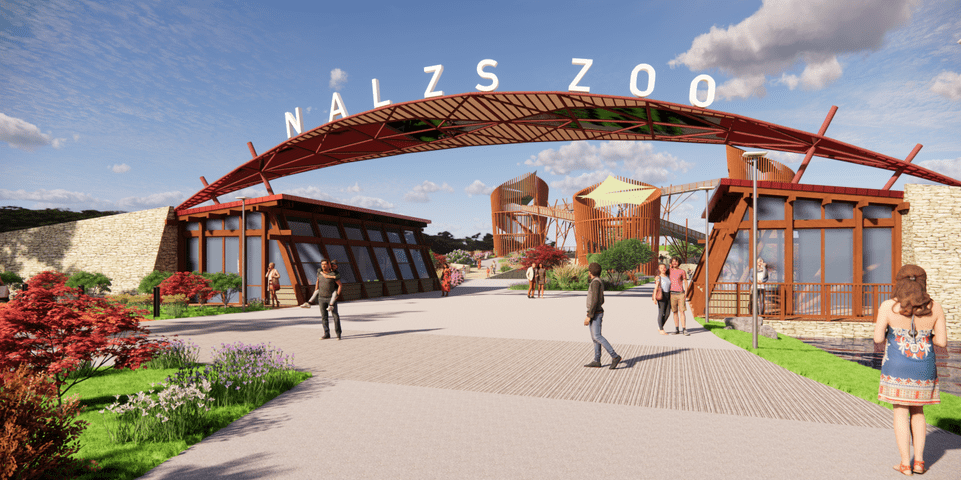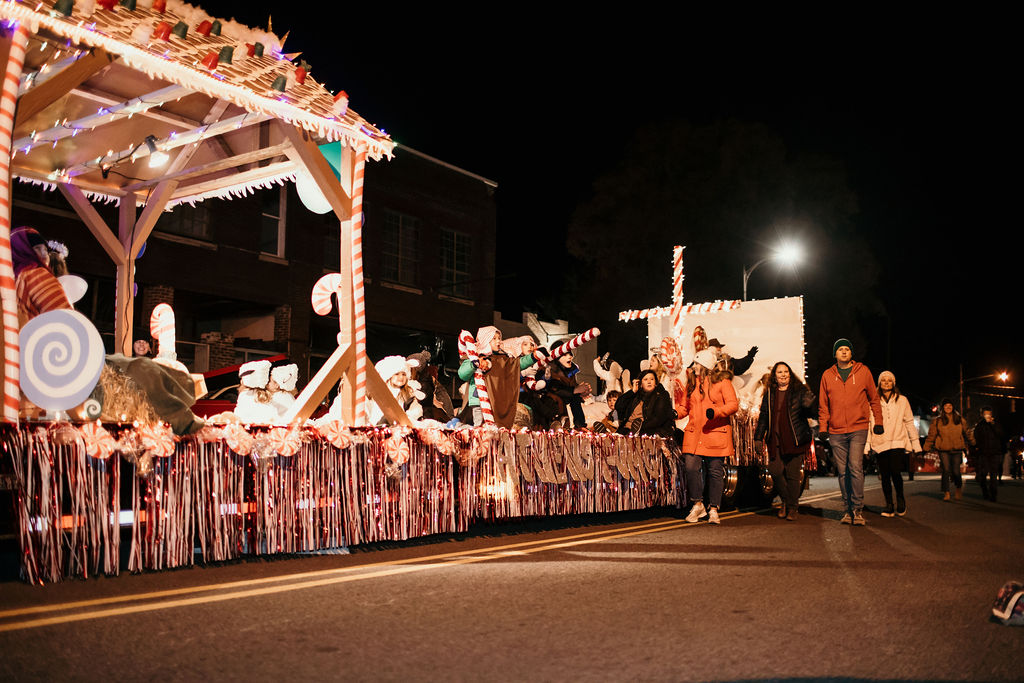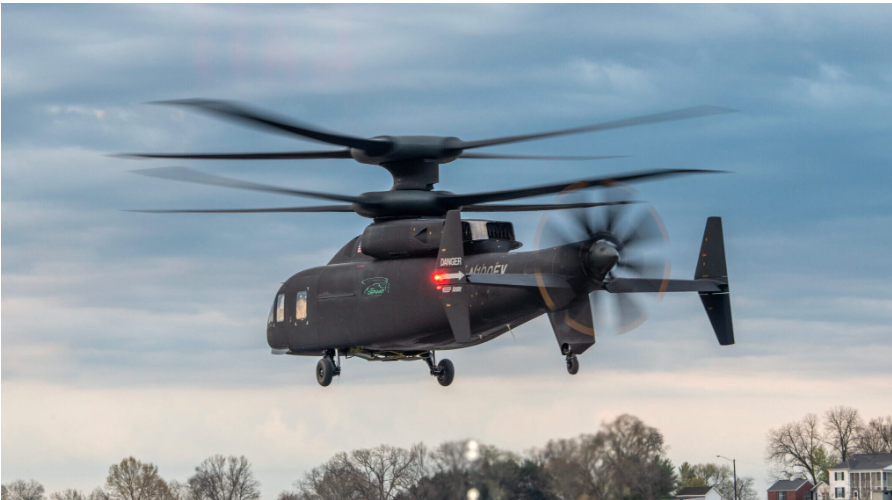CAPSHAW – With summer camp scholarship recipients as the backdrop and the unofficial camp mascot, Twickenham the Turtle, as a witness, Tom Von Eschenbach, program manager for Collins Aerospace, presented a $17,000 check to Ethan Woodruff, executive director of the North Alabama Zoological Society. The money will help fund scholarships and equipment for NALZS student summer camps.
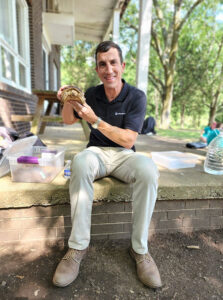
The Collins Aerospace gift is one of the largest donations NALZS has received to date.
“All of us are attempting to shape a better future for our community and generations to come,” Von Eschenbach said.
NALZS is fundraising under the “A Zoo For You, North Alabama” campaign umbrella and creating awareness for the forthcoming combination zoo and aquarium.
However, the donation from Collins Aerospace will go toward engaging kids with educational programs. A portion of the gift is being used to provide portable, rechargeable LCD microscopes for campers and the cost of purchasing STEM materials for students attending camps.
“As an aerospace company, certainly the propensity would be to support the STEM to support and inspire those careers, which we do,” said Von Eschenbach. “But this provided an equally important opportunity to inspire kids to learn from and appreciate the environment we live in.
“A key point we really embrace at Collins Aerospace is to look to our employees who are part of this community, to show us what they are passionate about and how we can support the work being done here.”
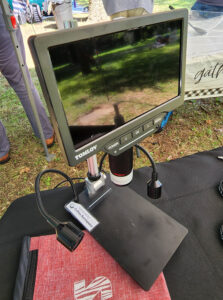
The facility’s proposed research property is on 279 acres at 14185 Lipscomb Drive, just outside the Madison city limits off U.S. 72 in Limestone County.
Though a zoo and aquarium is the major focus of the zoological society in the long term, the organization has vowed in the short term not to wait for that to happen.
Instead, NALZS is engaged in educational opportunities that will support conservation activities and efforts to protect species, habitats, and ecosystems.
Conservation efforts encourage the use of natural resources to prevent animals from extinction and to promote a healthy environment.
This advocacy for non-interference and protection for animals from humans is different from conservation, which engages society to seek solutions for people and ecosystems.
Phase I of the zoo will be a $30 million facility expected to bring 200,000 visitors a year with an economic impact of $118 million over six years.
The completed zoo and aquarium will cost an estimated $220 million and includes an onsite resort hotel employing 200 to 400 full-time and part-time employees.
Additions to the sprawling campus include a 200-acre research campus along Limestone Creek.


